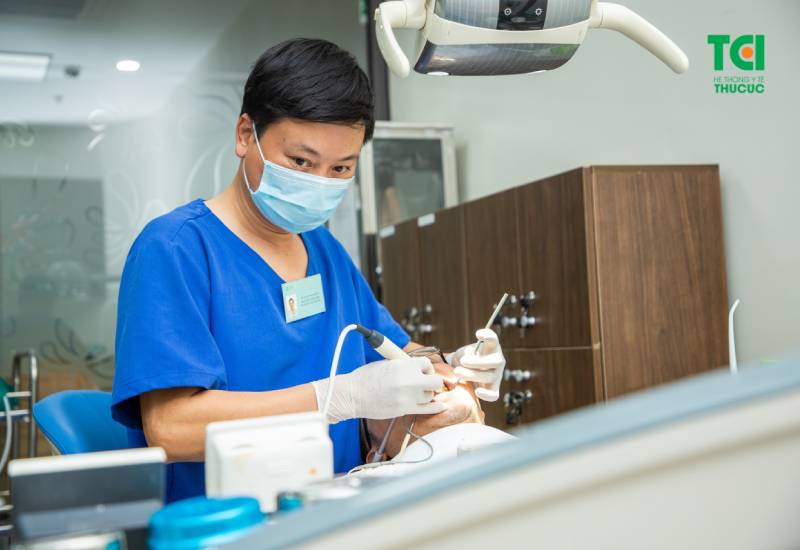Getting wisdom teeth extracted at the right time is crucial to prevent infections, damage, and potential impacts on overall health. Understanding when to undergo wisdom teeth extraction is essential for making informed decisions. Here, we’ll delve into the topic with insights from TCI dental experts to help you make the right choice.
1. Wisdom Teeth and Their Complications
1.1 What Are Wisdom Teeth?
Wisdom teeth, also known as third molars, are the last teeth to emerge in the adult mouth, typically between the ages of 17 and 25. In some cases, they may appear later and over a more extended period. Here are some characteristics of wisdom teeth:
– Late Emergence: Wisdom teeth are the final set of molars to appear after all other teeth have fully emerged.
– Quantity: Most people have four wisdom teeth, one at the back of each corner of the mouth. However, some individuals may have fewer or more than four, or none at all.
– Position: These teeth usually emerge at the very back of the jaw, often resulting in insufficient space, leading to impaction, misalignment, or crowding of adjacent teeth.
– Structure: Wisdom teeth can vary in shape and size but are typically similar in size to other large molars.

Wisdom teeth are the last permanent teeth to appear or erupt in the mouth.
The role of wisdom teeth
Given their late emergence when the primary chewing teeth are already functional, wisdom teeth are considered non-essential for chewing. Some suggest they can aid in chewing if other teeth wear out or are lost. However, due to frequent issues like impaction, misalignment, and infection, wisdom teeth are often regarded as unnecessary and are commonly removed.
1.2 Common Problems Caused by Wisdom Teeth
For many, wisdom teeth are a source of significant discomfort and complications. They can take years to fully emerge, and each growth phase can cause swollen, painful gums, making eating and daily activities difficult. Additionally, their location makes them hard to clean, leading to decay and broader dental health issues.
Misaligned or impacted wisdom teeth can exert pressure on adjacent teeth, potentially damaging or even destroying their roots, causing looseness or early tooth loss. Further complications include:
– Infections: Bacterial infections can cause gum inflammation, pericoronitis, cysts, and abscesses.
– Cysts and Tumors: Chronic irritation from impacted teeth can lead to cysts or jaw tumors.
– Bone Loss: Misaligned teeth can erode the jawbone structure.
– Temporomandibular Joint (TMJ) Disorders: These can cause jaw pain and difficulty in opening the mouth.
– Nerve Damage: Misaligned teeth can compress nerves, leading to numbness in the lips, tongue, or cheeks.
In some cases, infections from impacted wisdom teeth can spread to other areas, such as the tongue, throat, or neck, affecting overall health.

Wisdom teeth can cause significant discomfort when they grow in at an angle.
2. Timing for Wisdom Teeth Extraction
Not everyone needs wisdom teeth extraction. The decision should be based on individual circumstances after a thorough examination by a skilled dental professional at a reputable oral care facility.
2.1 When to Consider Wisdom Teeth Extraction
Dentists typically recommend wisdom teeth extraction in the following scenarios:
– Impaction or Misalignment: Teeth that are not emerging properly or are growing sideways.
– Lack of Space: Insufficient room in the jaw for teeth to emerge correctly.
– Frequent Infections or Decay: Persistent dental problems caused by wisdom teeth.
– Orthodontic Considerations: When wisdom teeth interfere with orthodontic treatments.
– Other Issues: Fractured, severely decayed, or abnormally large wisdom teeth affecting overall health.

Wisdom teeth extraction is performed using Piezotome technology at TCI.
2.2 Situations to Postpone or Avoid Extraction
Extraction might be delayed or avoided in cases such as:
– Normal Emergence: Teeth are growing properly and not causing issues.
– Ongoing Health Issues: Acute infections or systemic conditions like heart disease, high blood pressure, or blood clotting disorders.
– Pregnancy: Women who are pregnant should postpone elective dental procedures.
– Weak Immune System: Individuals with compromised health or low resistance should avoid unnecessary procedures.
It is crucial to have wisdom teeth extracted by a highly skilled oral surgeon using modern, optimized methods. Before extraction, a thorough examination and X-rays are necessary to evaluate the condition and determine the appropriate approach. Post-extraction, following the dentist’s instructions carefully is essential for quick recovery and avoiding complications.
2.3 Consequences of Incorrect Timing for Wisdom Teeth Extraction
Improper timing or unauthorized wisdom teeth extraction can lead to severe complications affecting dental and overall health:
During Extraction
– Pain, Swelling, Infection: If not managed promptly, these can lead to severe infections and even life-threatening conditions.
– Excessive Bleeding: Damage to blood vessels can cause prolonged bleeding.
– Nerve Damage: Potentially resulting in permanent numbness.
– Jaw Fracture: Risk of breaking the jawbone.
After Extraction
– Dry Socket: Severe pain, swelling, fever, and pus formation.
– Infection: Persistent or spreading infections.
– Loss of Chewing Function: Especially if multiple teeth are removed from the same jaw.
– Bite Misalignment: Affecting aesthetics and chewing efficiency.
Overall Health Implications
– Sepsis: Infections from the extraction site can enter the bloodstream, causing life-threatening conditions.
– Anaphylactic Shock: Allergic reactions to anesthetics or pain medications used during the procedure.
In summary, deciding when to undergo wisdom teeth extraction should involve a comprehensive evaluation by dental professionals at trusted clinics. Avoid self-diagnosis and follow professional guidelines before, during, and after the procedure to ensure safety and swift recovery.








